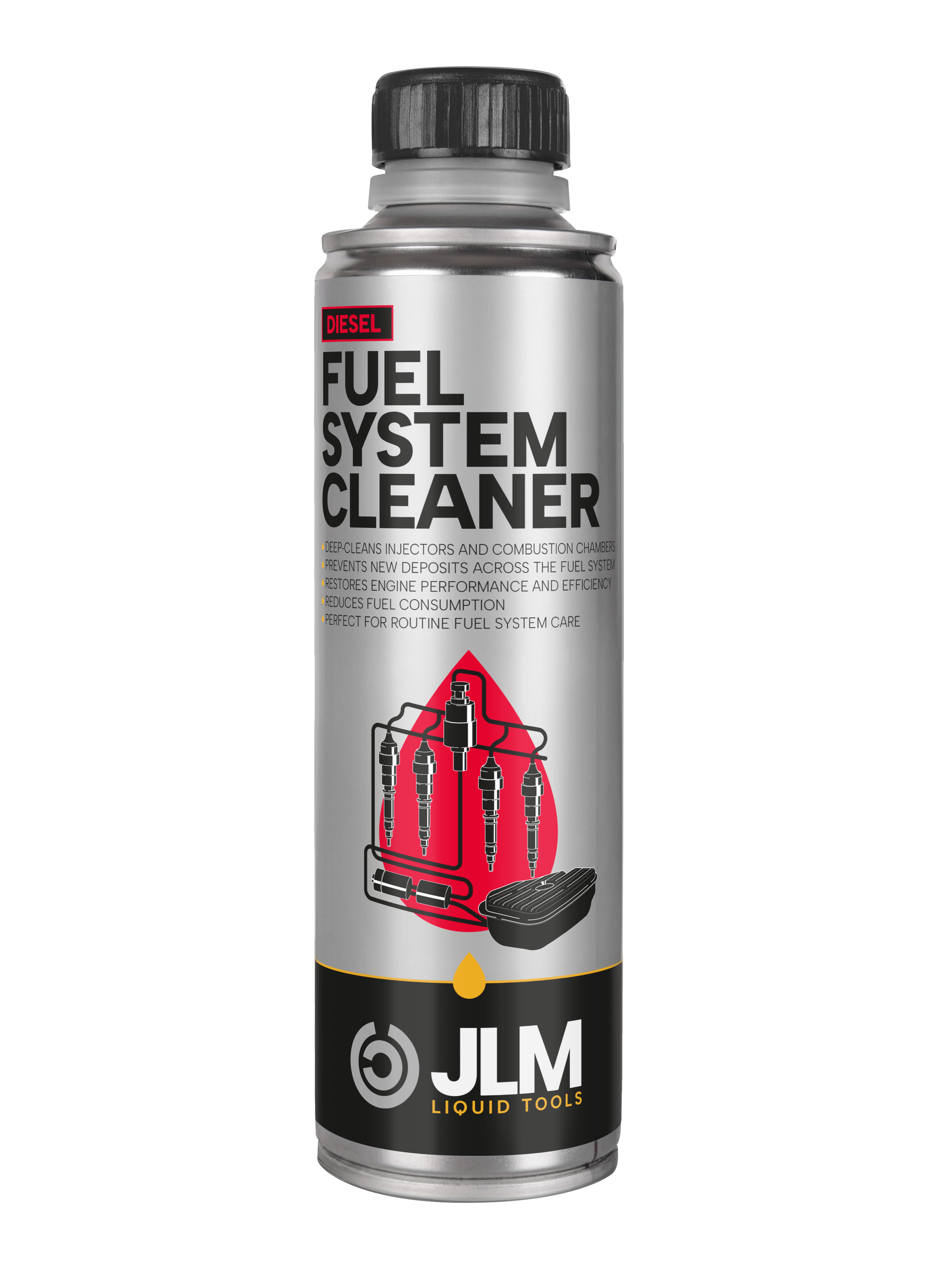
Danger | H304 May be fatal if swallowed and enters airways. | H411 Toxic to aquatic life with long lasting effects.
JLM Diesel Fuel System Cleaner is a professional-grade additive developed for ongoing maintenance of diesel engines. Designed for regular use, it works throughout the entire fuel system—deep-cleaning injectors, fuel pumps, intake valves, and combustion chambers—while preventing new deposits from forming. Ideal for workshops offering a routine fuel system care service, this cleaner helps keep diesel engines running smoothly, economically, and reliably.
Cleans & and Protects the Entire Fuel System
This powerful cleaner penetrates deep into the fuel system, removing stubborn carbon deposits from injectors, intake valves, and combustion chambers. It also forms a protective barrier, reducing the likelihood of new build-up.
Prevents Performance Loss
By maintaining clean injectors and precise fuel delivery, the additive helps prevent rough idling, poor acceleration, hesitation, and power loss before they occur.
Improves Fuel Economy
A cleaner diesel engine burns fuel more efficiently. Regular use of JLM Diesel Fuel System Cleaner helps reduce fuel consumption and lower operating costs over time.
Reduces Emissions
Deposits in diesel fuel systems contribute to incomplete combustion, smoke, and higher emissions. This product supports cleaner combustion and helps engines stay within emission limits for longer.
Ideal for Preventive Maintenance
Unlike one-off problem solvers, this cleaner is designed for regular use as part of a workshop service programme—making it the smart choice for keeping modern diesel engines in top condition.
Restore Your Petrol Engine’s Performance Today
Modern low-sulphur diesel fuels, while cleaner for the environment, can increase the risk of deposits, poor combustion, and premature wear of fuel system components. Over time, even high-quality diesel contributes to build-up that reduces efficiency and performance. JLM Diesel Fuel System Cleaner proactively tackles these issues, giving workshops and drivers an effective way to maintain diesel engines between major services.
It’s particularly suited for common rail systems, turbocharged engines, and vehicles covering frequent short trips or urban driving—conditions where deposits form more quickly.


